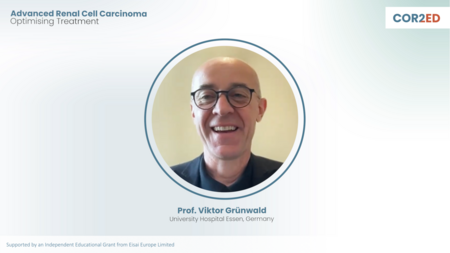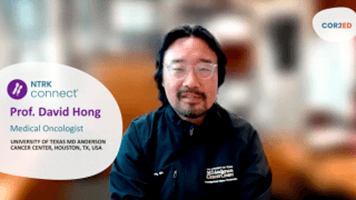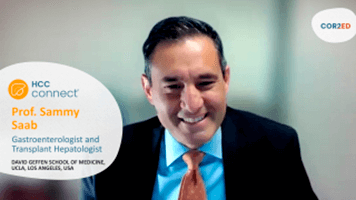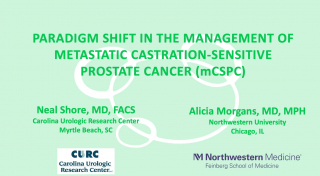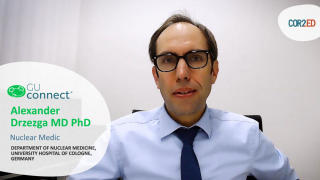
Advances in metastatic hormone-sensitive prostate cancer
Advances in metastatic hormone-sensitive prostate cancer
Assoc. Prof. Alicia Morgans
Associate Professor Alicia Morgans provides her thoughts on the recent advances in metastatic hormone-sensitive prostate cancer
Assoc. Prof. Alicia Morgans
Medical Oncologist
Dana-Farber Cancer Institute
United States (US)
Assoc. Prof. Alicia Morgans has received financial support/sponsorship for research support, consultation, or speaker fees from the following companies:
|
5 min
|
2018
This programme was made for you: your opinion matters
Share your feedback in just 4 clicks and help us to continue to create the content you need.
I agree that this educational programme:
Was valuable to me:
1/4
Has improved my knowledge of this topic:
2/4
Is likely to change my clinical practice:
3/4
Was balanced and unbiased:
4/4
download resources
This programme was made for you: your opinion matters
Share your feedback in just 4 clicks and help us to continue to create the content you need.
I agree that this educational programme:
Was valuable to me:
1/4
Has improved my knowledge of this topic:
2/4
Is likely to change my clinical practice:
3/4
Was balanced and unbiased:
4/4
Advances in metastatic hormone-sensitive prostate cancer
Associate Professor Alicia Morgans gives us her insight into the recent advances in metastatic hormone-sensitive prostate cancer treatment.
A modified standard of care in mHSPC
Data from a number of key trials suggests that standard of care for treatment of metastatic hormone-sensitive prostate cancer (mHSPC) has changed. Prof. Morgans examines the data and the challenges of this changing landscape. Addressed is how patient selection is critical to treatment decisions for mHSPC, and why combination therapies are becoming the new standard of care.
Trials examining combination therapy for mHSPC
Combination therapy for treatment of mHSPC data from key trials including CHAARTED, LATITUDE, and STAMPEDE are covered. These studies examine androgen deprivation therapy (ADT) and docetaxel chemotherapy combination, or ADT in combination with abiraterone acetate plus prednisone or prednisolone. Focused are the difference in response between high volume disease patients and low volume disease patients. Addressed are survival benefit and the importance of quality of life benefit as a consideration in treating patient subgroups. Prof. Morgans explains why, considering these studies, she chooses to use abiraterone for low volume patients. You are invited to watch the video and download the slides to gain from these clinical insights in prostate cancer treatment.
GU CONNECT is an initiative of COR2ED, supported by an Independent Educational Grant from AstraZeneca, Bayer and Eisai Europe Limited.









